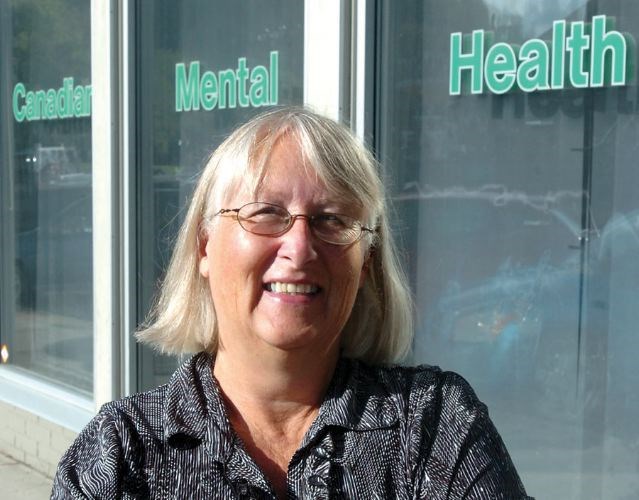As the second wave of the pandemic sees increased numbers of cases of COVID-19 and deaths as a result, there is a corresponding increase in levels of despair, suicidal thoughts and feelings of hopelessness among British Columbians.
The Canadian Mental Health Association (CMHA) conducted a nationwide survey to gauge how people were feeling heading into winter.
People in B.C. indicated they're worried about a number of coronavirus-related issues, including 55 per cent of those who took the survey saying they were afraid a loved one or family member will die from it, 42 per cent say their mental health has deteriorated since March and 36 per cent are worried about money while only 22 per cent are feeling hopeful.
"We are all in this together," Maureen Davis, executive director of the local branch of CMHA, said.
As Dr. Bonnie Henry recently announced restrictions on gatherings will extend until Jan. 8 with no holiday celebrations to take place with family and friends, Davis suggested there are alternatives.
"It's time to be looking for a unique Christmas," Davis said. "We need to see this as an opportunity to do something different. Doing more virtually, open presents virtually or over the phone - however we're able to connect - we just need to look at doing things differently."
Self-care should be a priority, she added.
"It's so important right now," Davis said. "Try not to indulge too, too much in alcohol or drugs as a method of coping because that's really only going to make any underlying depression a lot worse, which will make it harder for people."
Of those who participated in the study in B.C., 13 per cent admitted they have increased their use of substances as a way to cope. Increased alcohol use was disclosed by 16 per cent, while others increased use of other substances like cannabis (six per cent) and prescription medication (three per cent).
"People also have to check their expectations of themselves and of the season and know that we're going to be OK," Davis said. "We're going to get through this and we do have light at the end of the tunnel with the vaccines coming."
Davis warns the mental health piece is going to be an ongoing issue post-pandemic.
"The mental health piece is going to come and bite us even when our physical health is OK," she said. "That's a piece that we do need to start getting ready for. There's going to be a lot of people left grieving when this is over because they've lost people and they need to take care of themselves. They should reach out for any supports they need."
There are several community mental health care programs and services to support those in need, including counseling and peer support that are now held virtually or over the phone.
"There's a number of free phone-line services province-wide that people can reach out to depending upon what you're needs are," Davis said. "We have a long-distance Northern Health region-wide peer support line and there's Bounce Back, which is a coaching program for individuals dealing with mild to moderate anxiety or depression and that is a self-referred program with no wait time."
Confident Parents: Thriving Kids program, which helps parents address behavioural problems in children aged three to 12, is an avenue parents can take to get some support during these difficult times.
"This is particularly focuses on children with anxiety," Davis said. "And a lot of kids are dealing with anxiety these days and if children already have anxiety this is really kicking them over the edge and that's really hard for parents to manage that and support that while dealing with their own issues during the pandemic."
There has also been an increase in thoughts of suicide as one in 10 Canadians who took the survey said they have had thoughts or feelings of suicide which is up from six per cent in the spring and 2.5 per cent in pre-pandemic 2016.
"We all need to take care of ourselves and that means get as much exercise as you can, eat well, do some form of meditation or relaxation, stay away from the TV and the news - limit yourself to an hour a day if at all possible and reach out to people that you might not have connected with for a while," Davis suggested. "We're going to get through this."
For assistance and access to a variety of programs visit princegeorge.cmha.bc.ca or call 310-6789 in BC.



